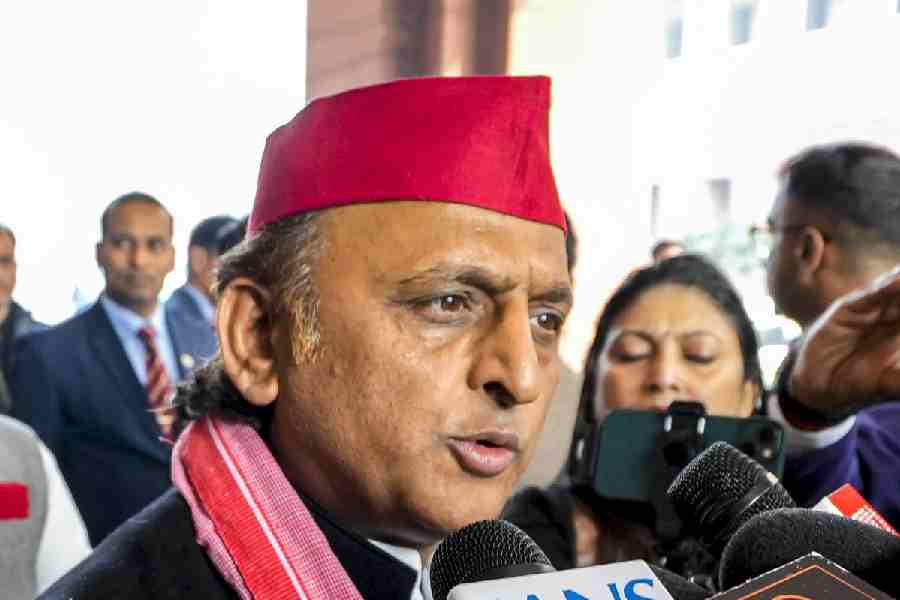 |
| Once upon a time in Mumbaai |
Dialogue pe dialogue, dialogue pe dialogue, dialogue pe dialogue... in Milan Luthria’s world, people spoke only in dramatic dialogues Once Upon a Time in Mumbaai. But this is more Once Upon a Time in Bollywood. The time of Deewaar and Don. The time of 786 tags and S-class Mercs. The time of Amitabh Bachchan and RD Burman.
Unlike most larger-than-life biggies made in the last few years, which failed to reprise the breakneck pace and boisterous passion of the era gone by, Once Upon a Time in Mumbaai gets the pitch spot on. It’s a period film but it’s not a purana film. It’s loud but not jarring. It’s like Parda parda, the Pritam song in the film, which uses snatches from Piya tu ab toh aaja and Duniya mein logon ko but spins its own catchy hookline.
The much-written and more-rumoured powerplay between Haji Mastan and Dawood Ibrahim as they formulated and developed the Mumbai underworld has previously been documented in Ram Gopal Varma’s Company. But Once Upon... is not about the details, it’s about the drama; not about being real, but rather send you reel-ing. It mixes myth and movies to offer a concoction so heady you cannot refuse.
Sultan Mirza (Ajay Devgn) is the hero here. Right from the time he works in the coal mines as a child, the script makes it very clear who it backs and who it blames. Having divided Mumbai amongst bhais according to police chowks, he becomes the sultan of the samundar — “lehron pe kabza kar liya”.
With time, the smuggling lord would call the shots in the whole city, fall in love with top movie star Rehana (Kangana Ranaut) and, in an obvious error of judgement, hire Shoaib (Emraan Hashmi) as one of his key men. The latter is a go-getter who would stop at nothing to achieve his share of the pie, the whole pie if poked and the entire bakery if pushed against the wall.
 |
Milan Luthria has a thing about two-protagonist films. From Kachche Dhaage to Taxi No. 9211 to Once Upon a Time..., he pits his two very-opposite heroes against each other in a survival-of-the-fittest battle. Here, the build-up is smart but loses a lot of the fizz because Emraan’s character is not defined well. How Shoaib’s gratitude towards Sultan suddenly turns into a game of grab-it-all is shown sketchily and that’s why the second half of Once Upon... cannot keep up the momentum of the opening one hour. The climax too is hurried, the execution almost amateurish.
But by then Ajay Devgn has won you over. “Mazdoor se malik” is the closest he gets to his Company character (Malik), as here he brings a humane finesse to Sultan. He is also not the sympathy-hungry Vijay of Deewaar, rather someone who wants to hedge all his evils with his good deeds.
His romance with Kangana, peppered with an amrud (a nod to the tarbooz of Satte Pa Satta) and a Rolex watch, is the high point of the film. The Gangster lady looks stunning in her bouffants and tights and shows that she doesn’t always need to scream her way through a film.
Emraan underplays his Shoaib throughout and given how random his character is, he does well not to expose too many of the chinks in the scripting armour. Prachi as his lady love is excellent.
The real revelation, though, is Randeep Hooda as ACP Agnel Wilson. Yes, you read that right! Hidden in the promos and passed off as a special appearance, even though his screen duration is quite sizeable, he’s ‘D’ man. In quite a comeback, Hooda sparkles in every scene he is given and it is largely his absence that makes the second half comparatively dull.
 |
A lot of Once Upon... is about the production design (Nitin Desai), the cinematography (Aseem Mishra) and the costumes (Manoshi Nath and Rushi Sharma). Shot in warm tones with every frame soaked in a rainbow of colours, the mise-en-scene instantly transports you three decades back and keeps you there.
Pritam is back in form with this one, even if not entirely. Besides Parda parda, Tum jo aaye and Pee loon strike the right chords.
Even today Sergio Leone’s double bill Once Upon a Time in the West and Once Upon a Time in America remain two of the finest films encapsulating the respective periods and spaces. Once Upon a Time in Mumbaai may not be up there but it certainly rewinds to one of Bollywood’s most dramatic phases. After all, you can never go wrong with the Pancham grunt, can you?










